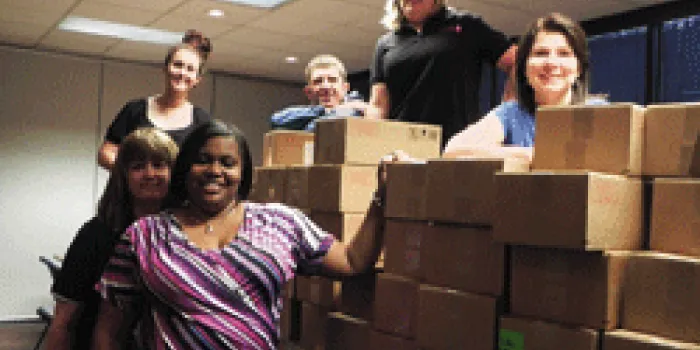One of the greatest challenges in trying to improve the lives of people with bleeding disorders in developing countries is ensuring access to adequate treatment with clotting factor concentrates. In these countries, treatment is often not available. People with bleeding disorders know if they are rushed to the hospital with a bleed, they may not get the help they need. In fact, 75% of people with inherited bleeding disorders globally remain undiagnosed and receive inadequate care or none at all.
This was the situation for a 20-year-old Afghan man with hemophilia who arrived at a military hospital in Kabul, Afghanistan, with a throat infection, severe bleeding and trouble breathing. Doctors performed an emergency tracheostomy to save his life. But without factor treatment, the patient’s condition was critical. Doctors sought clotting factor concentrates from several organizations, including the World Federation of Hemophilia (WFH), which responded without delay. “It was his last chance,” says Aurore Brondex, MD, attending military physician. “Within hours, 30,000 IUs [international units] of factor IX had been sent from the United States.”
There are many such examples of how the WFH Humanitarian Aid Program serves those in need. WFH tries to build sustainable systems of comprehensive care and save lives in countries with limited or nonexistent access to treatment. Donations support WFH development programs such as the Global Alliance for Progress and the Cornerstone Initiative, which focuses on impoverished areas of the globe. By sending donations worldwide, WFH demonstrates to health authorities the efficacy of treating patients with factor and the importance of building a foundation of sustainable hemophilia care.
WFH USA
In 2012, WFH USA, the US-based awareness-building and fundraising arm of the organization, contributed more than $36,000 to the WFH Humanitarian Aid Program. The funds went toward transportation costs that helped support an unprecedented donation of 40 million IUs of clotting factor concentrates. WFH USA funding of the WFH Humanitarian Aid Program helped cover the cost of distributing the clotting factor concentrates to countries in need.
Most US factor donations are given by WFH’s pharmaceutical corporate partners, and are received and stored at Hemophilia of Georgia (HOG) in Atlanta. “No matter their job title, everyone at HOG pitches in to ensure the shipment goes out the same day,” says Trish Dominic, HOG CEO.
Shipping factor donations to some remote places requires work and resources. Without the WFH Humanitarian Aid Program, many more people would go untreated. The program responds to emergencies in countries with limited access to treatment. WFH is the largest distributor of donated clotting factor concentrates, thanks to contributions of donors and volunteers.
Since its beginning in 1996, the WFH Humanitarian Aid Program has sent more than 246 million IUs of clotting factor concentrates to 86 countries. Donations are sent to hemophilia treatment centers and national member organizations of the WFH to benefit people with bleeding disorders, no matter where they live or the circumstances they face.

